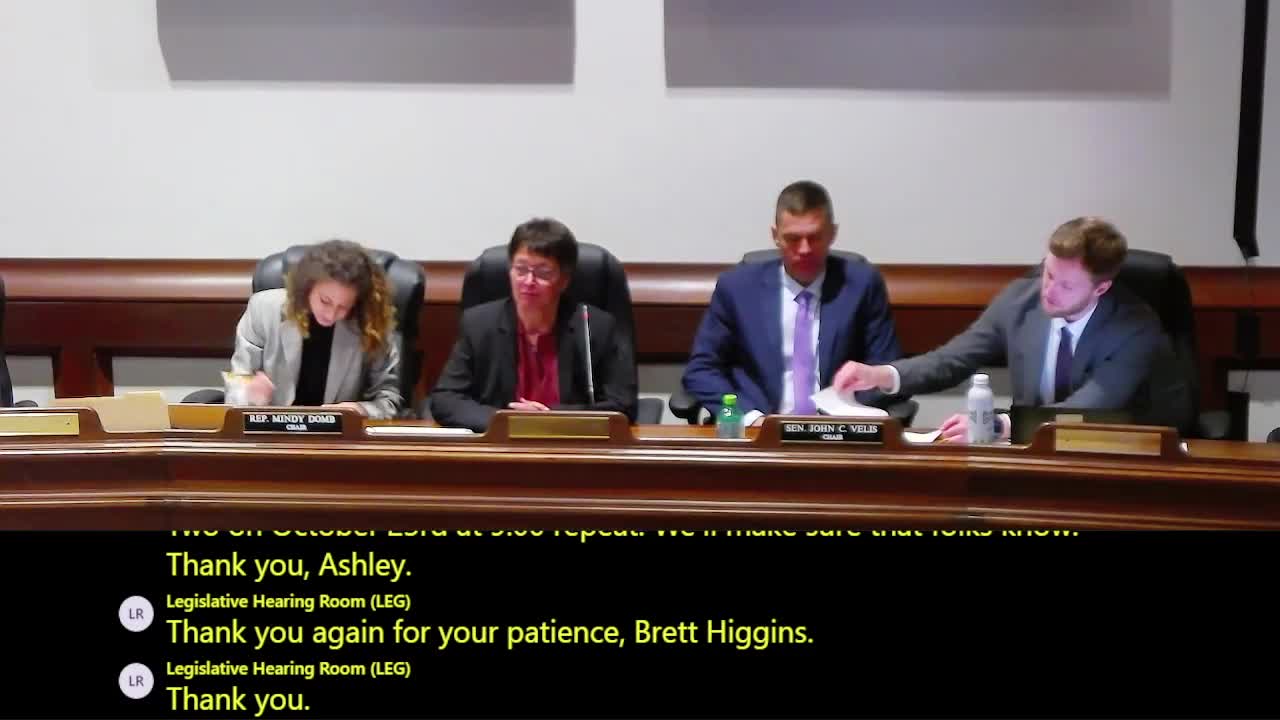Committee hears calls to modernize and enforce psychiatric 'fundamental rights' including cellphones, email and independent investigators
Get AI-powered insights, summaries, and transcripts
Subscribe
Summary
Advocates, peers and legal groups urged the committee to update Massachusetts' six "fundamental rights" for people in psychiatric hospitals and DMH-funded settings to include private access to personal devices, email, broader visitation, gender‑relevant care and an independent complaints process with modest penalties.
Legislators and people with lived experience urged the Joint Committee to update and strengthen the state’s "fundamental rights" for psychiatric patients so those rights reflect modern communications, ensure gender‑appropriate care and create enforceable remedies.
Representative Higgins, an original sponsor of the modernization bill, told the committee the package would "modernize communication access to include email," expand access to gender‑appropriate facilities and personal care products, clarify who may visit and create an accountability process. Lived‑experience witnesses described being denied private communications and visits and said the current enforcement mechanisms rarely produce remediation.
Provisions and rationale: The bills would explicitly permit personal device use (with reasonable privacy protections), allow patients to send and receive electronically delivered mail, expand the list of allowed advocates to include peer supporters and recovery coaches, and provide for investigators unaffiliated with the facility to examine repeated violations. Testifiers argued those changes would reduce trauma, improve continuity with community supports, and lower readmission risk. Several witnesses said many patients experience at least one rights violation per hospital stay.
Why it matters: Witnesses described how loss of confidential contact, restricted visiting hours and ward conditions can worsen psychosis and increase suicidality. Legal and advocacy organizations, including the Mental Health Legal Advisors Committee and members of peer and family advocacy groups, urged the committee to create enforceable remedies rather than guidelines.
Accountability and enforcement: Several speakers supported adding limited monetary penalties for repeated violations, with revenue directed to support patients harmed by violations and to fund independent investigators. Witnesses described conflicts of interest arising when a facility’s own human‑rights officer investigates complaints and urged independent review positions.
What the committee heard but did not decide: The hearing included personal testimony and policy details but produced no committee vote. Lawmakers asked about costs and whether proposed changes could be implemented without major new spending; witnesses said most changes need little or no new funding, with a modest appropriation for independent investigators and enforcement recommended.
Ending: Advocates asked the committee to report the bills favorably so that protections for hospitalized and DMH‑funded residents are clear, modern and enforceable.
